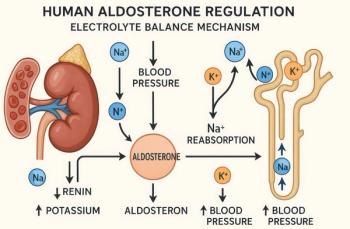
Beta-Blockers May Exert Anti-Atherosclerotic Effects
CLEVELAND -- Beta-blocker therapy can provide statistically significant regression of coronary artery plaque, found a review of intravascular ultrasound (IVUS) studies here.
CLEVELAND, July 3 -- Beta-blocker therapy can provide statistically significant regression of coronary artery plaque, found a review here of four intravascular ultrasound (IVUS) studies.
Atheroma volume decreased by an average of 2.4 mm3/y among beta blocker-treated patients, compared with 0.4 mm3/y among those who did not receive beta-blockers (P=0.034), reported Steven E. Nissen, M.D., of the Cleveland Clinic, and colleagues, in the July 3 issue of the Annals of Internal Medicine.
The volume of coronary plaque decreased significantly from baseline to the end of the evaluation period in patients who received beta-blockers (P
Patients treated with beta-blockers had a significantly greater reduction in atheroma volume in a univariate analysis and a multivariate analysis that controlled for MI, angina, and hypertension. Adjustments for LDL-cholesterol level, concomitant medications, and clinical trial did not change the results.
The investigators said that antiatherosclerotic effects of beta-blockers have been demonstrated in multiple animal models but not in human coronary arteries. However, a meta-analysis of randomized controlled trials last year found that long-term beta-blocker therapy was associated with a significant slowing of carotid intima-media thickening in hypertensive patients with diabetes or coronary heart disease and asymptomatic carotid artery disease.
Dr. Nissen and colleagues pointed out that beta-blockers reduce heart rate and slow blood velocity, leading to less turbulent blood flow and less intramural stress. However, adjustment for average heart rate during therapy did not change the results. The investigators also cited evidence that beta-blockers may reduce the affinity of LDL cholesterol for vessel wall proteoglycans and blunt catecholamine-induced endothelial permeability to lipoproteins.
Limitations of the study include its nonrandomized nature and the imbalance between treated and untreated patients. Additionally, the authors acknowledge that IVUS findings are a surrogate endpoint for coronary artery disease. Whether IVUS-detected changes in atheroma volume predict cardiovascular outcomes is unknown.
Newsletter
Enhance your clinical practice with the Patient Care newsletter, offering the latest evidence-based guidelines, diagnostic insights, and treatment strategies for primary care physicians.
































































































































